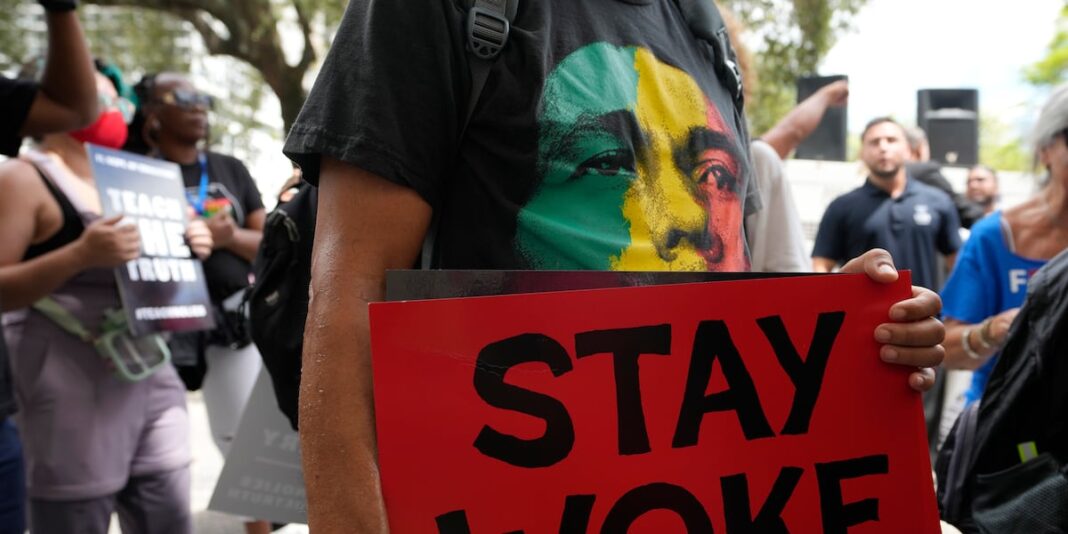Understanding “Woke”: From Affirmation to Political Battlefield
The phrase “stay woke” has transformed significantly over the years, evolving from a term rooted in African American culture to one used in political discourse. Originally, it signified an awareness of social injustices, particularly regarding race. Today, it has been appropriated by various political factions, often as a pejorative term.
The Historical Roots of “Woke”
“Wokeness” dates back several decades as African American slang advocating for awareness about racism and social injustices. Historians trace its origins to early 20th-century Black nationalist movements. Marcus Garvey, a Jamaican-born activist, echoed calls for awakening among people of African descent in a 1923 essay collection. The phrase also appears in Lead Belly’s 1938 song “Scottsboro Boys,” which relayed a cautionary message to Black audiences based on the wrongful conviction of four Black youths.
Prominent figures like Gerald McWorter, a professor of African American studies, emphasize that “woke” encapsulates the historical struggle for voice and recognition of Black suffering throughout centuries, including the legacy of slavery. The term resurfaced in popular culture in the 1960s, notably in a New York Times essay by novelist William Melvin Kelley, further embedding itself in African American vernacular.
A Modern Reawakening
In contemporary society, the term found renewed life through popular media. Erykah Badu, a singer-songwriter, is credited with reviving “woke” in her 2008 song, “Master Teacher.” The phrase gained momentum as a rallying cry during the Black Lives Matter movement in response to incidents of police violence against Black individuals, notably following the 2014 shooting of Michael Brown in Ferguson, Missouri.
As the movement expanded, “woke” came to symbolize not just awareness among Black individuals but also an acceptance of sociopolitical responsibility among allies from diverse racial backgrounds.
The Backlash Against “Woke” Culture
The term entered a contentious phase in the 2010s, as discussions surrounding inclusivity and critical race theory became heated. Critics, particularly from conservative circles, began to frame “woke” as synonymous with political correctness. This backlash intensified with actions like Florida Governor Ron DeSantis signing the “Stop W.O.K.E. Act,” which sought to restrict discussions about race and gender in educational settings. The move sparked significant debate, as many viewed it as a direct assault on educational freedom.
Prominent voices within conservative circles have characterized “woke” as a divisive ideology. Liz Huston, a White House spokesperson during Donald Trump’s presidency, claimed that under Trump’s leadership, America was shedding “woke” ideals that supposedly harmed national unity.
Perspectives on “Woke”
The current climate surrounding “woke” reveals a division even within communities that initially championed it. For some, like George Pearson, a former chair of the Illinois Black Republican Coalition, the term feels diluted, lacking real impact. He criticizes both sides of the political spectrum for reducing complex issues into simplistic labels.
Conversely, within liberal circles, debates persist regarding whether the term continues to serve its original purpose. Some argue that the so-called “woke culture” oversimplifies complex social issues, while others defend its role in promoting social justice and awareness.
The Evolution of Language
Today, many Black individuals have distanced themselves from the term “woke.” Pop culture writer Elijah Watson notes that it has become more of an inside joke among younger generations, stripping it of its profound connotations. However, efforts to reclaim the word persist. Notable figures like Jane Fonda have redefined “woke” in public forums, emphasizing its essence as a call for empathy and heightened awareness about the struggles of marginalized communities.
Seena Hodges, a DEI strategist, opened The Woke Coach, aiming to foster emotional intelligence and awareness within organizations. For Hodges, the term retains its significance, representing a commitment to understanding and inclusion, despite the diluted interpretations circulating in public discourse.
Through all these shifts, “woke” has evolved into a multifaceted term, deeply embedded in cultural and political conversations, reflecting the ongoing struggle for equity and social justice.



